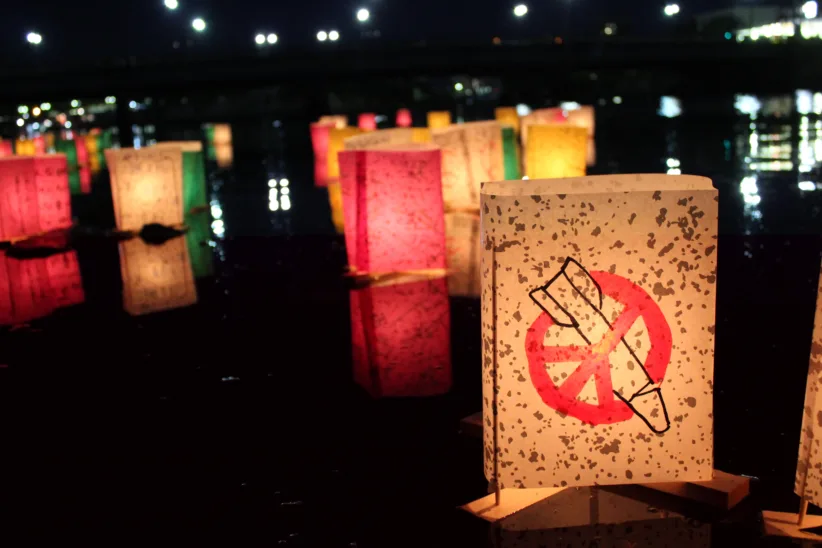Nuclear weapons are banned!
Three years ago, a majority of the world's countries adopted the UN Treaty on the Prohibition of Nuclear Weapons, thus clearly stating that weapons designed for mass murder of civilians are unacceptable. Today, the nuclear ban has reached 50 ratifications. This means that in 90 days the agreement will become part of international law. In other words: Nuclear weapons are banned!

Now the long process of getting more and more states to sign the ban, and of translating it into gradual disarmament and abolition, begins.
- The ban creates a completely new dynamic in international disarmament, says Henriette Westhrin, Secretary General of Norwegian People's Aid. - This is a clear message from the majority of the world states that they no longer accept that threats of mass murder of civilians are used as a defense strategy, and nor should Norway.
Norway boycotted the negotiations when the Treaty on the Prohibition of Nuclear Weapons was adopted, and has since then spent a lot of resources arguing against the world's worst weapons of mass destruction being banned. This despite the fact that 78% of the Norwegian population answered that they support the ban when Norwegian People's Aid in 2019 conducted a survey in collaboration with Respons Analyse.
The danger of nuclear weapons being used is greater than ever. Norway and other umbrella states (states that rely on protection from nuclear weapons-states) that do not want to support the ban on nuclear weapons stand in the way of disarmament. - Our politicians must take a clear stand to show that they distance themselves from nuclear weapons and nuclear deterrence, Westhrin concludes.
Facts about the nuclear ban:
On 7 July 2017, 122 countries adopted the UN Treaty on the Prohibition of Nuclear Weapons. That same year, the International Campaign to Ban Nuclear Weapons, ICAN, received the Nobel Peace Prize. Norwegian People's Aid is a part of ICAN's international board.
To date, 84 states have signed the ban and 50 states have ratified it.
